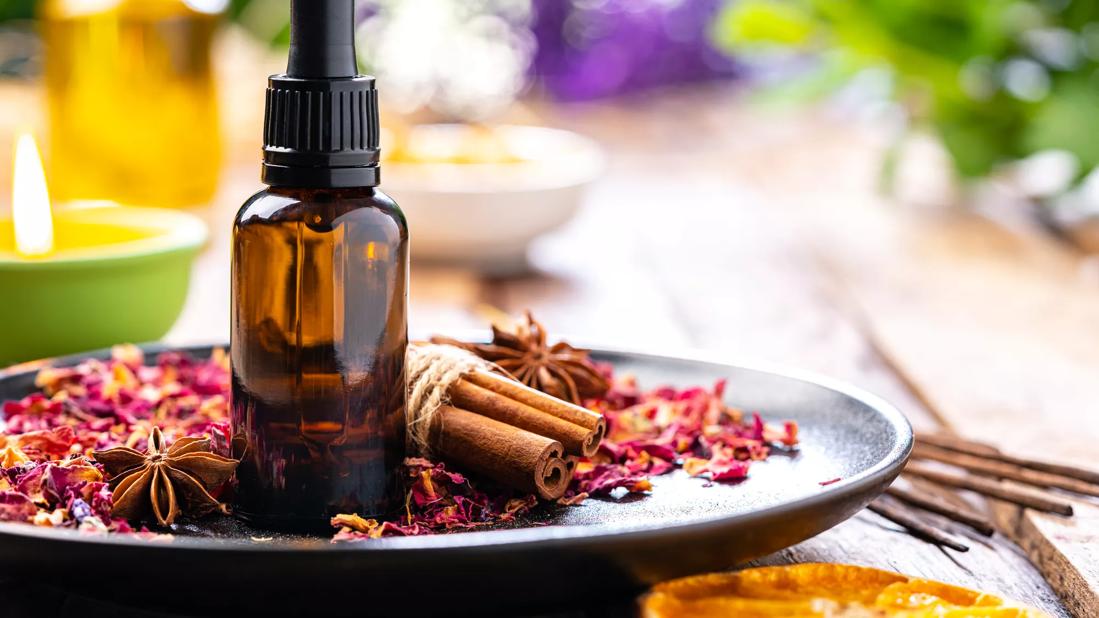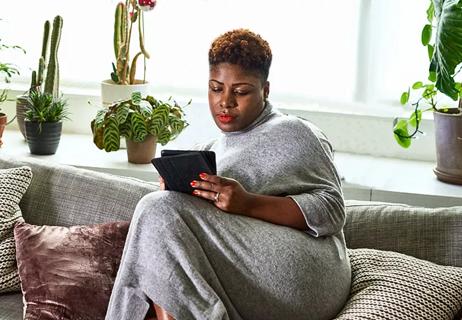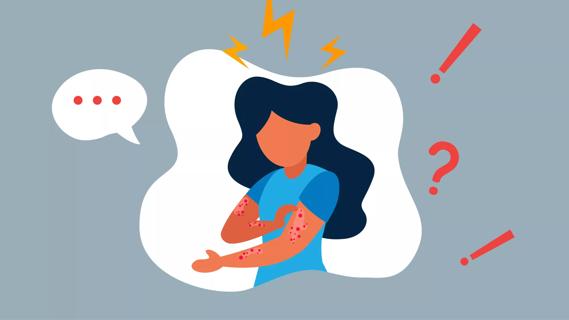Advertisement
Research shows how the use of essential oils can offer a calming effect

Can easing stress be as simple as taking a whiff of something that smells pleasant? That’s the working theory behind aromatherapy, an ancient form of treatment that continues to captivate our senses today.
Advertisement
Cleveland Clinic is a non-profit academic medical center. Advertising on our site helps support our mission. We do not endorse non-Cleveland Clinic products or services. Policy
Quite simply, interest in aromatherapy is booming. It’s estimated that the global market for essential oils, like lavender, sweet orange and cedarwood, will grow by many billions of dollars in the coming years.
But does this form of complementary and alternative medicine pass the scientific sniff test and deliver stress-relieving results? Let’s find out from functional medicine specialist Melissa Young, MD.
The use of aromatherapy dates back thousands of years. Hippocrates, the father of modern medicine, considered it key to good health. The treatment also is rooted in Egyptian, Indian and Chinese lore.
“Aromatherapy has strong roots,” says Dr. Young. “It has been used throughout history for health reasons — and many studies and research we’re doing today show just how useful it can be in some situations.”
Common techniques for aromatherapy include inhalation of steamed or diffused essential oils, massage or baths.
As a therapy for stress and related issues, it’s being put into practice in the following ways.
Stress is a heavy weight on your mind and body that can keep you up at night. But the calming effect of aromatherapy may help people set aside worries long enough to catch some sleep.
Want proof? Consider this: Researchers found that aromatherapy using lavender reduced stress and improved sleep quality for patients in an intensive care unit. (That’s an environment that isn’t exactly relaxing.)
Patients who received aromatherapy also experienced reductions in blood pressure and heart rate, two vital signs typically driven up by stress.
The effect is seen outside of a hospital setting, too. A review of 30 different studies looking at aromatherapy and sleep quality found that the treatment improves ZZZs by lowering stress, pain, anxiety, depression and fatigue.
“Going under the knife” isn’t quite a soothing thought as you await surgery, which explains why so many people experience high anxiety before they make that long roll into an operating room.
Aromatherapy appears to ease those worries. A review of 27 studies showed that aromatherapy greatly reduced anxiety in patients awaiting procedures ranging from cardiac surgery to low-risk procedures.
Advertisement
Lavender, citrus and rose essential oils were the most used scents in the studies. Delivery modes included inhalation and massage.
“We’ve seen some very good evidence regarding how aromatherapy can be used to help people reduce anxiety pre-procedure, so much so that we’re seeing it used in hospitals now,” notes Dr. Young.
Various studies have shown how aromatherapy massage may help relieve depression symptoms and improve overall mood. Another study suggests that aromatherapy massage could help lift postpartum “baby blues” after delivery.
Aromatherapy massage and inhalation also has been shown to reduce pain and improve quality of life during menstruation.
“We’re learning more and more about how aromatherapy can be used therapeutically to address all sorts of different needs,” says Dr. Young. “There’s more and more data available to us.”
If you do have symptoms of depression, it’s best to see a healthcare provider to get an assessment and treatment plan. At-home aromatherapy is not a substitute for professional mental healthcare.
So, how does a simple sniff of certain essential oils trigger these sorts of results? The explanation centers on how your brain and the rest of your nervous system respond to the aromatic stimuli.
Essential oils release tiny molecules into the air that enter your nose when you inhale. Receptors in your nose pick up the scent and alert your brain through your olfactory nerve, explains Dr. Young.
That sets off activity (including hormone release) within the part of your brain that controls your emotions.
“That’s one of the reasons why people may feel calmer and happier after aromatherapy,” she adds. “These smells influence our brain and nervous system. It’s really an incredible process.”
Essential oils are highly concentrated extracts made from flowers, seeds, stems, leaves and other plant parts. The oil is pulled out of the plant through means such as distillation, steam or mechanical cold press.
Different oils target different conditions. Lavender is often used for relief of stress and anxiety. Ditto for chamomile, clary sage and geranium.
Other variations connected to stress relief include:
Given their concentrated strength, essential oils should be diluted with carrier oils for safe use on skin in aromatherapy massage or baths. Examples of carrier oil include coconut oil, grapeseed oil and olive oil.
Aromatherapy isn’t recommended if you have or experience health issues involving:
“Aromatherapy may be triggering if you have certain conditions,” warns Dr. Young. “It’s best to use caution in those instances.”
Talk to your healthcare provider before trying aromatherapy if you’re pregnant or taking a prescription medication. They may recommend against using certain essential oils or techniques in some situations.
Other cautions with essential oils include:
Advertisement
The purity and quality of essential oils on the market also can be an issue. Despite being used for health issues, essential oils aren’t regulated as a pharmaceutical used to treat, cure or prevent illness. Instead, most essential oils fall under a cosmetics classification.
Finding quality essential oils begins by researching to find a reputable manufacturer, says Dr. Young. She recommends looking for products labeled as “organic” or “therapeutic grade.” Check for the Latin name of the oil source on the label, too.
It’s also best to stay away from fragranced products, as those often include synthetic ingredients. And while everyone likes a good deal, be wary of cheap essential oils. (“Odds are they’re not pure,” says Dr. Young.)
There’s no shortage of aromatherapy products available for anyone who wants to try this ancient-yet-modernized form of holistic treatment for stress. The market makes it incredibly easy to get started.
But before you begin, it’s important to understand how to do aromatherapy and its limitations. Aromatherapy shouldn’t be used as a substitute for other medications.
“Aromatherapy is complementary to conventional medicine,” emphasizes Dr. Young. “Talk to your healthcare provider about whether it’s right for you and your situation. They’re your best bet to find an effective and safe path forward.”
Advertisement
Learn more about our editorial process.
Advertisement

Enter relaxation mode by managing your breathing, releasing muscle tension and practicing mindfulness

Your body’s natural response to stress can lead to painful skin irritation

Whether you’re trying to work out more, drink less or manage stress, we can help set you up for success

Immersing yourself in nature can improve both your mental and physical health

Flying can cause dehydration and bloating and make you feel tired and stressed

When your senses start to feel overwhelmed, practices like deep breathing can help

Start by seeing a healthcare provider to rule out conditions with similar symptoms

No joke, laughter can relieve stress, strengthen your relationships and even do your body good

Your metabolism may torch 1,300 to 2,000 calories daily with no activity

A gentle touch in all the right places may help drain your sinuses